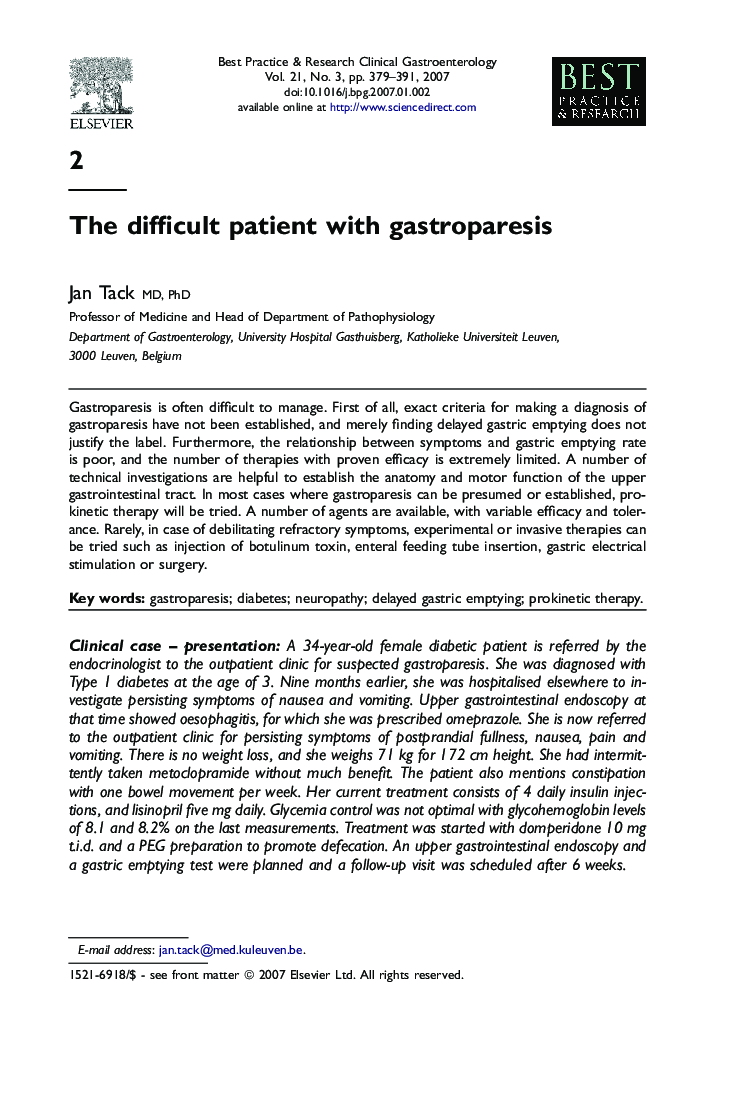| Article ID | Journal | Published Year | Pages | File Type |
|---|---|---|---|---|
| 3254503 | Best Practice & Research Clinical Gastroenterology | 2007 | 13 Pages |
Gastroparesis is often difficult to manage. First of all, exact criteria for making a diagnosis of gastroparesis have not been established, and merely finding delayed gastric emptying does not justify the label. Furthermore, the relationship between symptoms and gastric emptying rate is poor, and the number of therapies with proven efficacy is extremely limited. A number of technical investigations are helpful to establish the anatomy and motor function of the upper gastrointestinal tract. In most cases where gastroparesis can be presumed or established, prokinetic therapy will be tried. A number of agents are available, with variable efficacy and tolerance. Rarely, in case of debilitating refractory symptoms, experimental or invasive therapies can be tried such as injection of botulinum toxin, enteral feeding tube insertion, gastric electrical stimulation or surgery.
